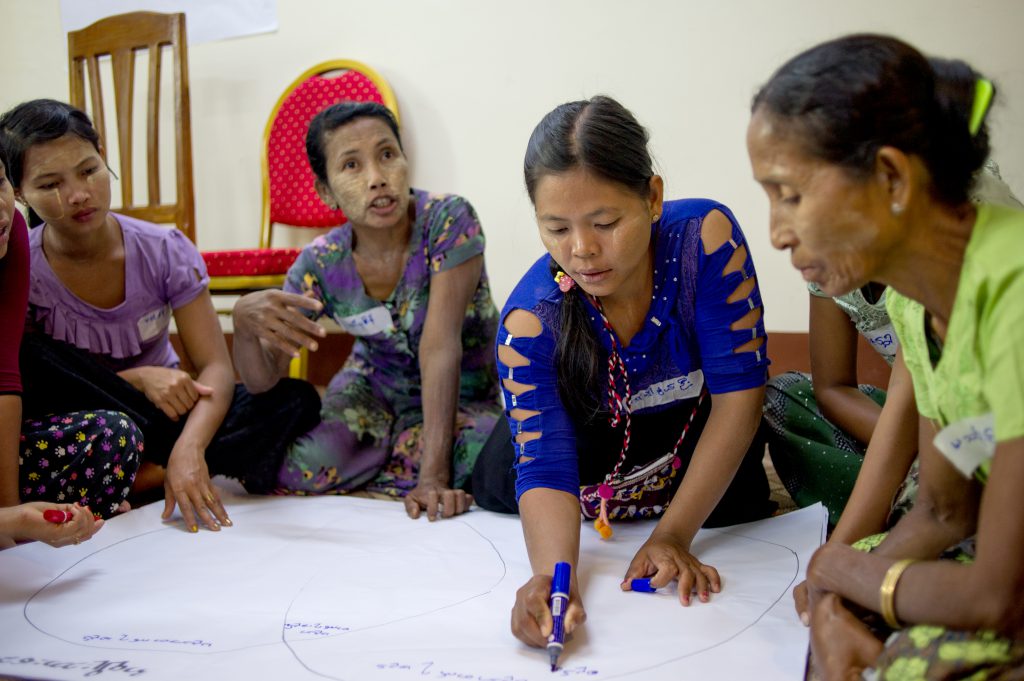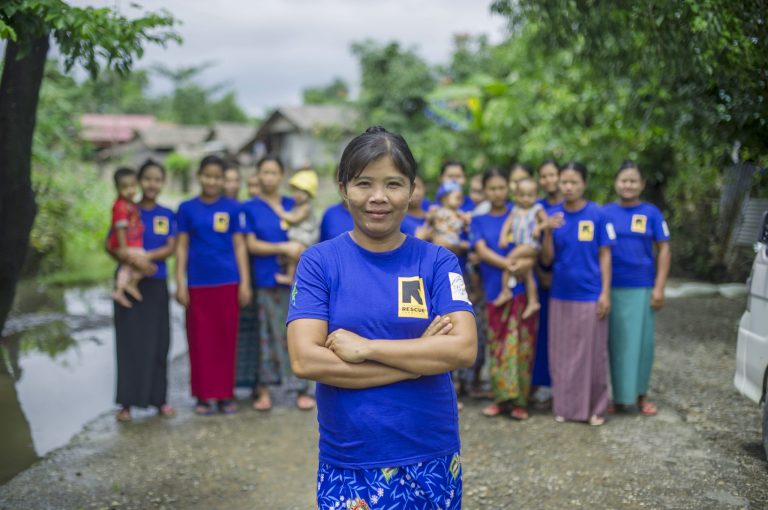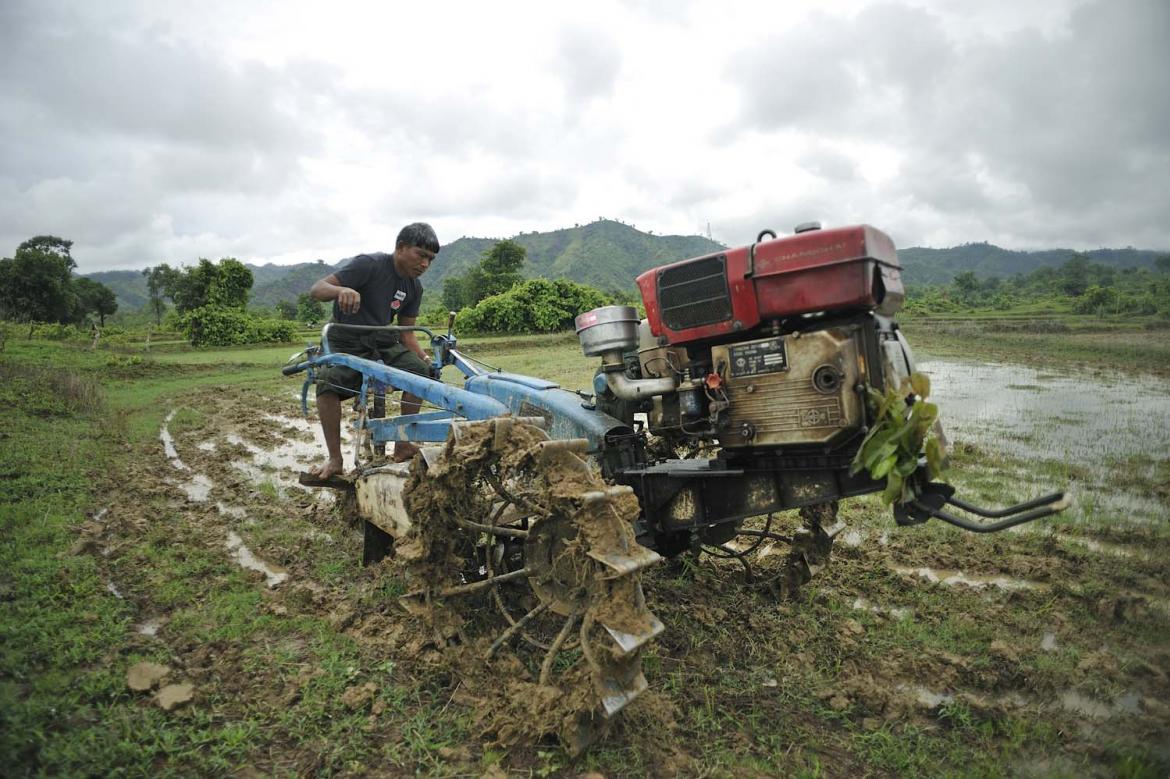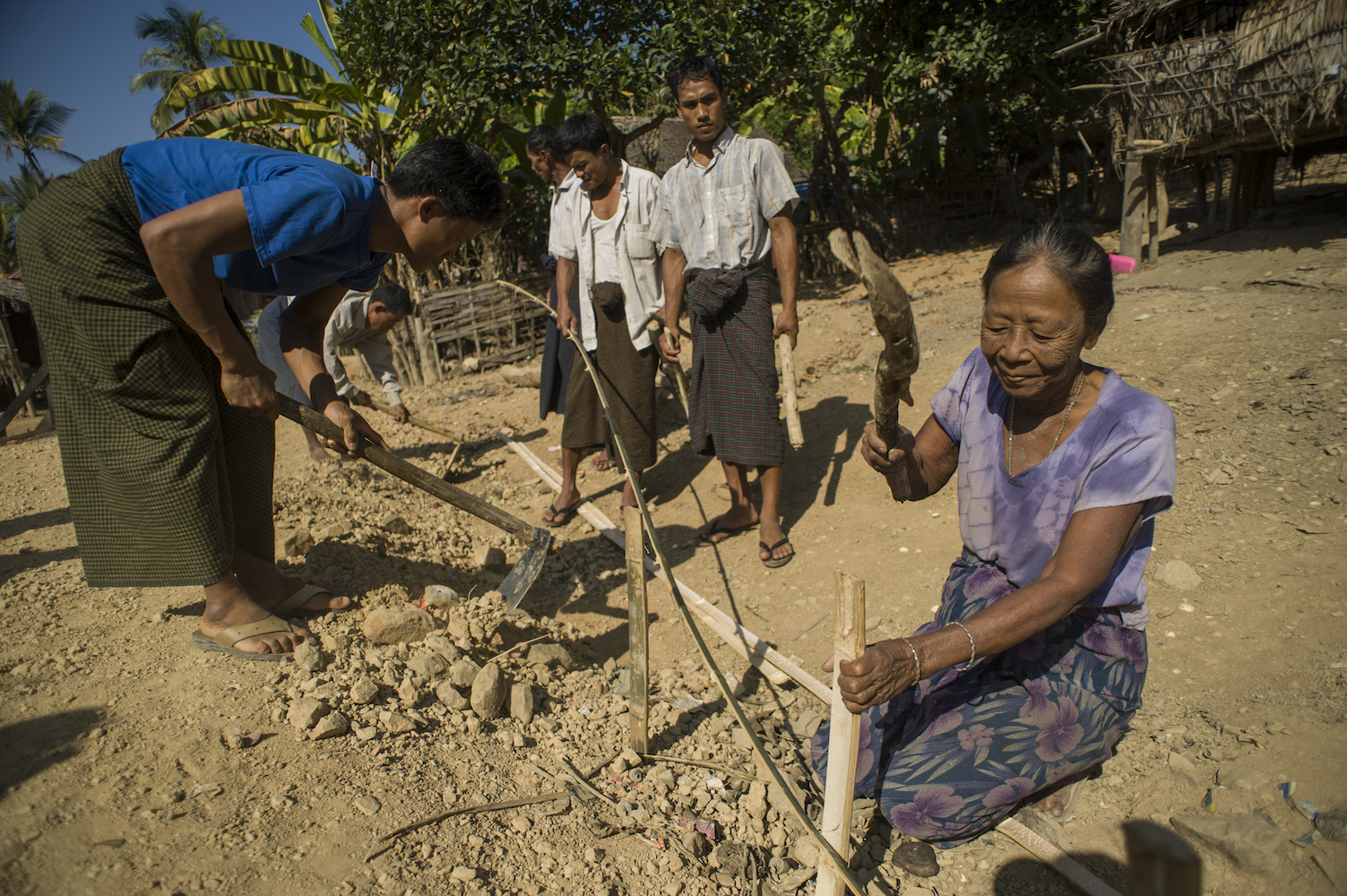Newly empowered women in Kyaukphyu are breaking through barriers of discrimination that have treated them as ‘second-class’ citizens for generations.
By JENNIFER MACINTYRE | TAT LAN
“I WISHED I could be a man. I felt so wronged,” says Ma Cho Nwe Oo, a 27-year-old mother of two girls. A tear rises in her eyes as she remembers the moment: six months pregnant with her first child, she had challenged a village leader over a perceived injustice. She was dismissed and told women are “too complicated”.
But Cho Nwe Oo is a born leader. Today, she’s a social worker and trusted advocate in Kyaukphyu Township, where she leads training programs on women’s leadership and land rights. She’s established a women’s group in her village, Ohn Taw, and attends Oxfam and Scholar Institute meetings to learn how communities may be affected by the Kyaukphyu Special Economic Zone, and how they can take advantage of the zone’s potential benefits.
“I am worried about potential impacts such as gender discrimination, pollution or deforestation. How will we manage to make our concerns heard?” she asks.
”We must reach out to support each other. One voice is not enough, many people need to talk about this. Participation is very important.”
Breaking free
Cho Nwe Oo found the confidence to speak her mind, and the means to make her voice heard, when Better Life Organization (BLO) and Oxfam brought a women’s empowerment programme to Ohn Taw. The women identified community issues at the training and then set about finding creative ways to solve their problems. Their solutions proved to be so successful they won the support of their villages.
This Tat Lan initiative also revealed Daw Shwe Than’s ability to organise people. Consequently, in December 2015, the villagers in Chaung Wa unanimously elected her as one of their 10-household leaders. Her election to represent their interests at the 100-household meeting and to the village-tract authority has been inspiring for local women. They now see they can cross the barriers of discrimination that have separated rural Rakhine men and women for generations.
Shwe Than, who manages a three-acre paddy farm, felt afraid to accept the nomination at first. Like most rural Rakhine women, she was denied the opportunity to learn to read because there were no government schools in rural areas and the monastic schools taught only boys. But since taking up the role, she has thrived and enjoys leading village meetings.
“I built my confidence and encouraged myself by successfully performing as a leader in BLO’s women’s empowerment activities, where I learned presentation skills,” she said.
Shifting mindsets
In 2015, the Tat Lan gender baseline survey identified numerous cultural traditions that have maintained lines of divide between men and women. A woman in Rakhine State tends to be at least five years younger than her husband, who customarily represents his family at community meetings and makes all the family decisions. Though most women manage their household’s finances, they are not confident to participate in public meetings and will only attend if invited by their husband or a village elder.
By tradition, women and girls eat only after men and boys, so if all the fish is consumed women and girls are denied protein, which can contribute to malnourishment. The role of women is to nurture and emotionally support their families by being home-based, taking care of the cooking and cleaning, caring for children and collecting water.
img_9734.jpg
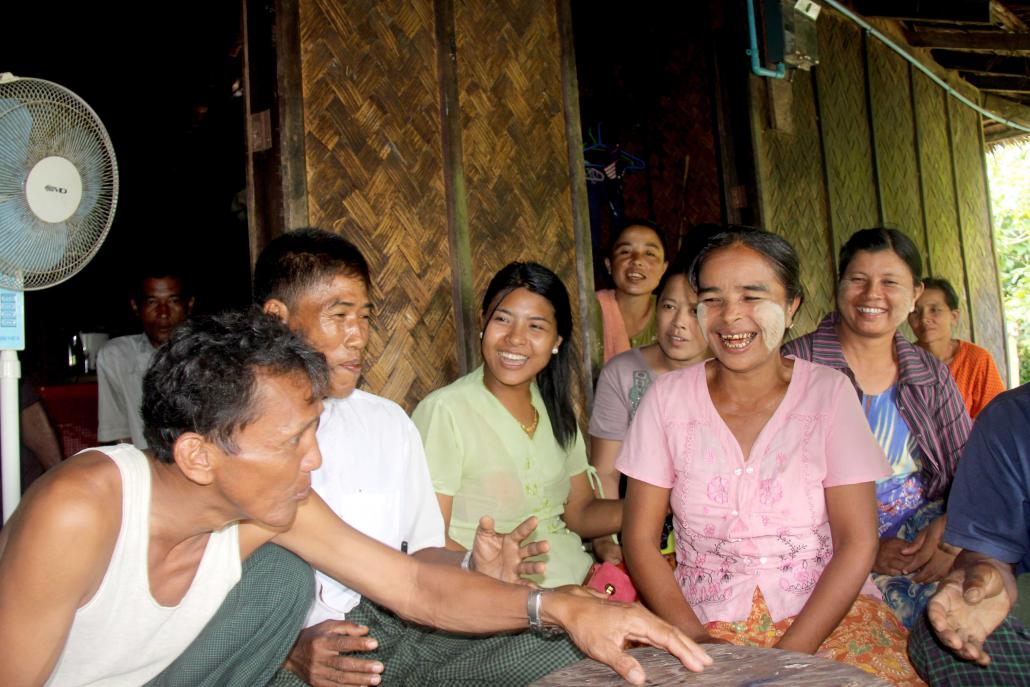
title=
The Tat Lan programme confronts this inequality by encouraging women’s participation in 259 remote villages. Today, 76 women out of every 100 interviewed say they are included in financial
decision-making in their villages. Three out of 10 members of village development committees are now women representing livelihood groups, including agriculture, fisheries, village savings and loans associations, and infrastructure.
In Minbya and Myebon townships, some women are organising cash-for-work infrastructure teams, where female members receive the same pay as men for equal work. Though initially men contested the equal pay, women upheld it as an important symbol of equality.
Oxfam’s women’s leadership training, led by gender officer Ma Thandar Thae Su, is open to both men and women. This ensures everyone has an awareness of gender and understands three key concepts: women and men have equal rights, violence against women is not acceptable, and women have the same potential as men to be good leaders.
Before attending the three-day Oxfam training, U Nga Nyo from Ka Lan Kyan village said he thought gender and women’s leadership training was about encouraging women to fight with their husbands.
“The training is really different to what I expected. We discussed the friendship and relationship between men and women,” he said. “I want to try not to quarrel with my wife and I want to give both my son and daughter equal opportunities in life.”
After struggling for 30 years to win respect from men, Saw Khin Win, a leader with the Kyaukphyu Women’s Network, celebrates a newly developing equality as men and women work together.
“In our community, women were second class. Men didn’t trust women. Now we are cooperating with each other to build and create sustainable community development through socially accountable leadership,” she said.
Khin Win now takes every opportunity she can to discuss community issues with members of the Rakhine parliament, representatives from government departments and leaders of civil society organisations.
Cho Nwe Oo believes this budding equality will only grow in the years to come. “We know what we are doing is not wrong. We can go ahead now,” she said. “I’m not afraid to be a woman now.”
The Tat Lan programme is building resilience in 259 vulnerable Rakhine State villages through an integrated programme aimed at improving food security, livelihoods, water, sanitation, nutrition, community participation and governance. The programme is funded by the Livelihoods and Food Security Trust Fund (LIFT).


